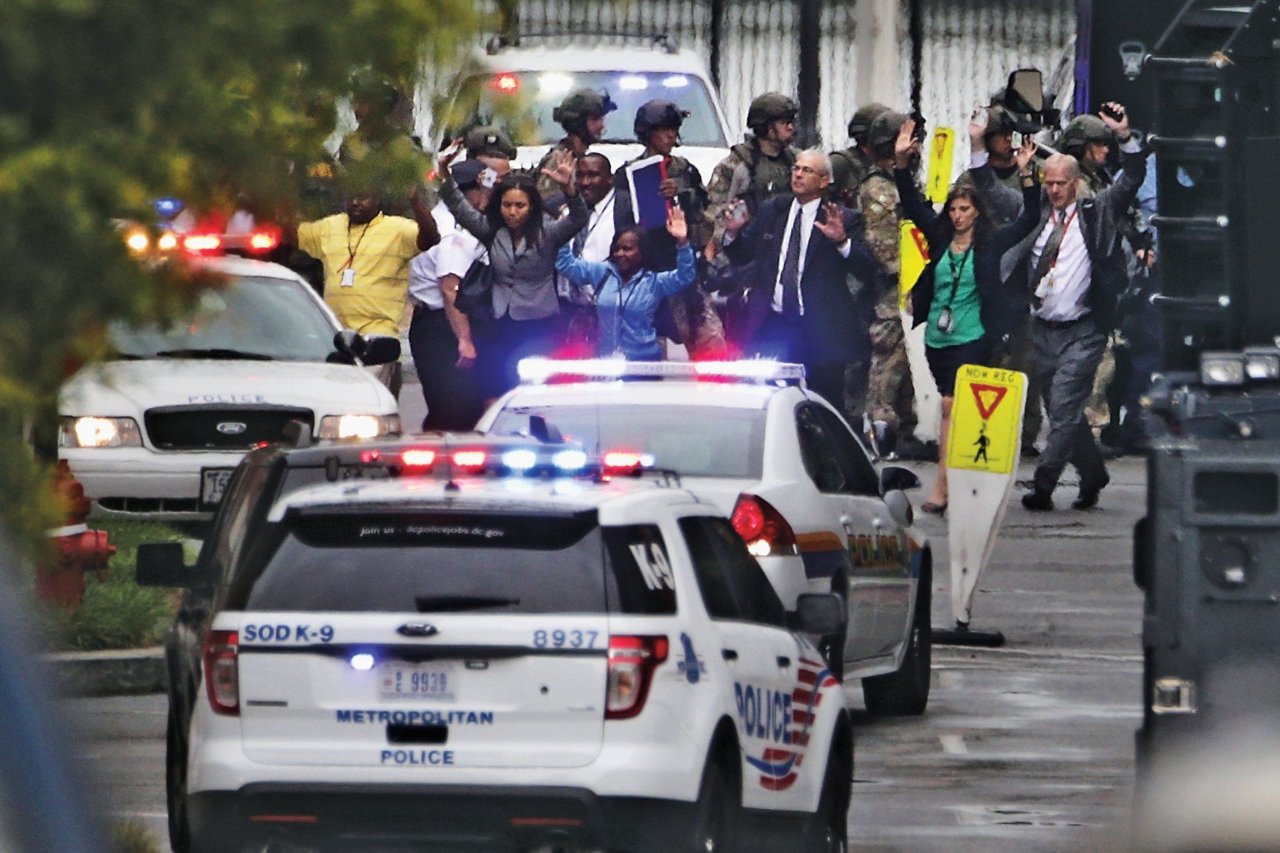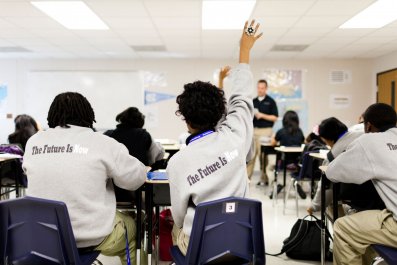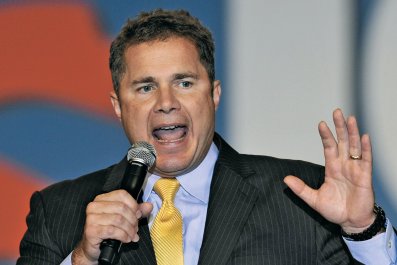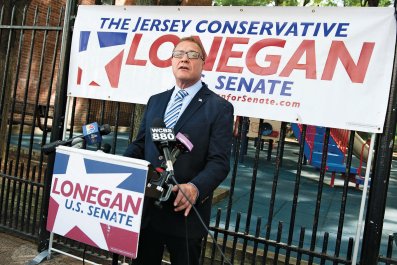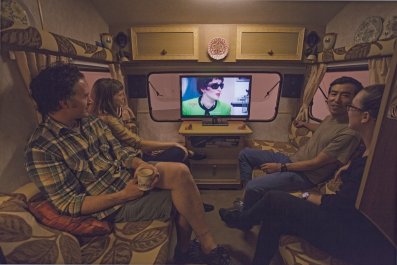I was elected president of the Colorado state Senate in November 2012, four months after a deadly shooting in Aurora, Colorado, in which a man carrying a 100-round drum magazine murdered 12 and wounded 58. The following month, the nation was mortified once again when a gunman stole weapons from his mother, fatally shot her, and went to Sandy Hook Elementary School in Newtown, Connecticut, where he murdered 20 children and six adults.
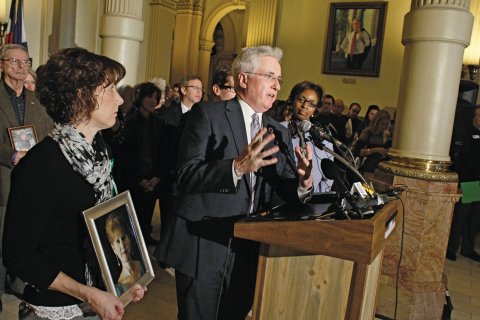
When I banged the gavel on the first day of our legislative session in January 2013, I swore we would take action to prevent further devastation. We did—and last week, in a recall effort led by opponents of gun control, I lost my job for it. But I have no regrets: I simply cannot accept the notion that it would have been acceptable for Colorado to do nothing to stem the tide of mass violence. And this week, as I watch the nation once again cope with the aftermath of a mass murder—this time at Washington, D.C.'s Navy yard—I am more persuaded than ever that the fight for gun-safety legislation must continue.
I have dealt with gun violence for much of my adult life: first, as a paramedic treating gunshot victims and then as a police officer. I remember my first shooting call as a paramedic. An estranged husband went into his wife's home and shot her in the head with a shotgun. Then he turned the gun on himself. All this happened with a baby lying in a crib in the same room. Both husband and wife died, though the baby was uninjured. It is impossible to erase gruesome images like these from my mind.
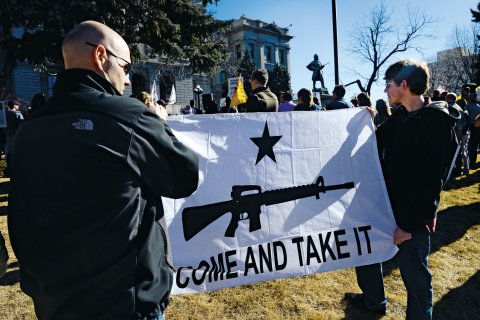
Dealing with gun violence as a senator was an entirely different matter. My main concern was no longer how to respond to the next incident, but rather how to prevent these incidents from happening in the first place. Without question, this was a more difficult proposition. It is much easier to stop the bleeding than to stop the violence.
We entered the 2013 legislative session in Colorado with the eyes of the nation upon us, as people on all sides of the gun-violence issue took great interest in what we would attempt to do. David Keene, the president of the National Rifle Association, visited the state capitol before the session. We held a press conference to announce our early bill ideas, accompanied by grieving relatives who had lost loved ones at the Aurora theater and in Newtown. Without a doubt, everyone knew the legislation would be controversial, but by the end of the session in May, we had passed five moderate bills that made sense for Colorado.
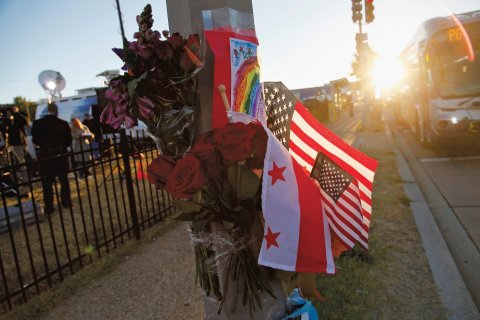
First, new magazines purchased in our state now require that you reload your gun after cranking out 15 rounds. Second, everyone who wants to buy a gun has to pass a background check. Third, the gun buyer has to pay for the background check—the taxpayer will no longer pick up the tab. Fourth, the required training for a concealed-weapons permit must be obtained partially in person and not entirely online as was previously permitted. Finally, we took an element of existing federal law concerning domestic violence and made it state law, so that state judges now have jurisdiction over guns owned by, or easily accessible to, domestic-violence perpetrators—and can secure them if they think it is appropriate for the safety of the parties even before a conviction is entered.
In short, we limited the number of rounds a person attempting to commit mass murder could fire without reloading, we made it more difficult for a person who shouldn't have a gun to get one, we reduced expenses for the taxpayer, we strengthened training requirements for those legally carrying a concealed weapon, and we made it less likely that a domestic-violence victim will become a murder victim.
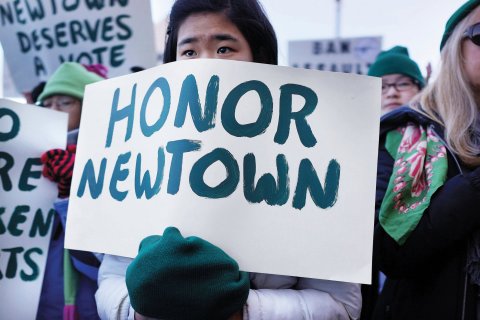
Republican support on these measures was almost entirely nonexistent. I had hoped GOP senators would at least support the law that protects domestic-violence victims, but not one of them voted "yes" on that law. Two Republicans voted in favor of strengthening training for concealed-carry permits—that was the extent of their support for gun safety.
None of these laws infringes upon the Second Amendment, yet the gun lobby opposes them all. And some of the opposition got ugly. Our efforts to prevent gun violence were met with threats of violence. State Rep. Rhonda Fields lost her son and his fiancée to gun violence some years ago, and she represents the district that includes the Aurora theater, so she was naturally interested in supporting gun-safety legislation. In response, she received death threats targeting her and members of her family, as well as emails calling her nasty names related to both her race and her gender.
Eventually the gun lobby sought to recall four state lawmakers. Two of these attempts failed to trigger an election, but the other two resulted in both state Sen. Angela Giron and me facing a recall election last Tuesday. Once it became clear that I would face a recall, I fought with everything I had to prevent the gun lobby from winning. I wish it had been enough. My campaign talked to over 13,000 people who pledged their support, but when the polls closed September 10, nearly one third of them had missed their chance to make a statement in support of our efforts. I lost by fewer than 350 votes. In the end, less than 11 percent of the registered voters in my district voted to recall me, yet that was sufficient for the recall to succeed.
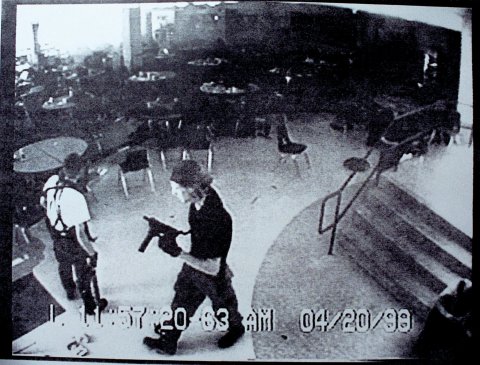
Following this week's murders in Washington, the NRA said, "We grieve and pray for those who lost their lives," but of course offered no solutions or concessions. When this horrific headline vanishes, more shootings are certain to fill the void, and the questions will remain: Is the status quo OK? Will those of you who favor gun-safety measures turn out at the polls—especially in local races—to support candidates who share your views? Are your elected representatives at the state and federal level more concerned about their own political careers than how safe you are in your neighborhood movie theater, your school, or your workplace?
I'm proud that the gun-safety laws we passed will remain on the books despite my removal from office. Going forward, I hope that politicians and voters across the country will find ways to build on our successes in Colorado. We must not allow the self-serving gun lobby to dictate the way our society responds to violence—and in the aftermath of tragedies like the one the Washington Navy Yard experienced this week, we must not shrug our shoulders and act as if nothing can be done.



